NRL COVID shutdown: Precise moment when the league’s very existence reached crossroads
On the first anniversary of the suspension of the NRL competition due to the COVID-19 crisis, Peter V’landys reveals the shocking jolt that stopped him in his tracks and ‘left me shattered’.
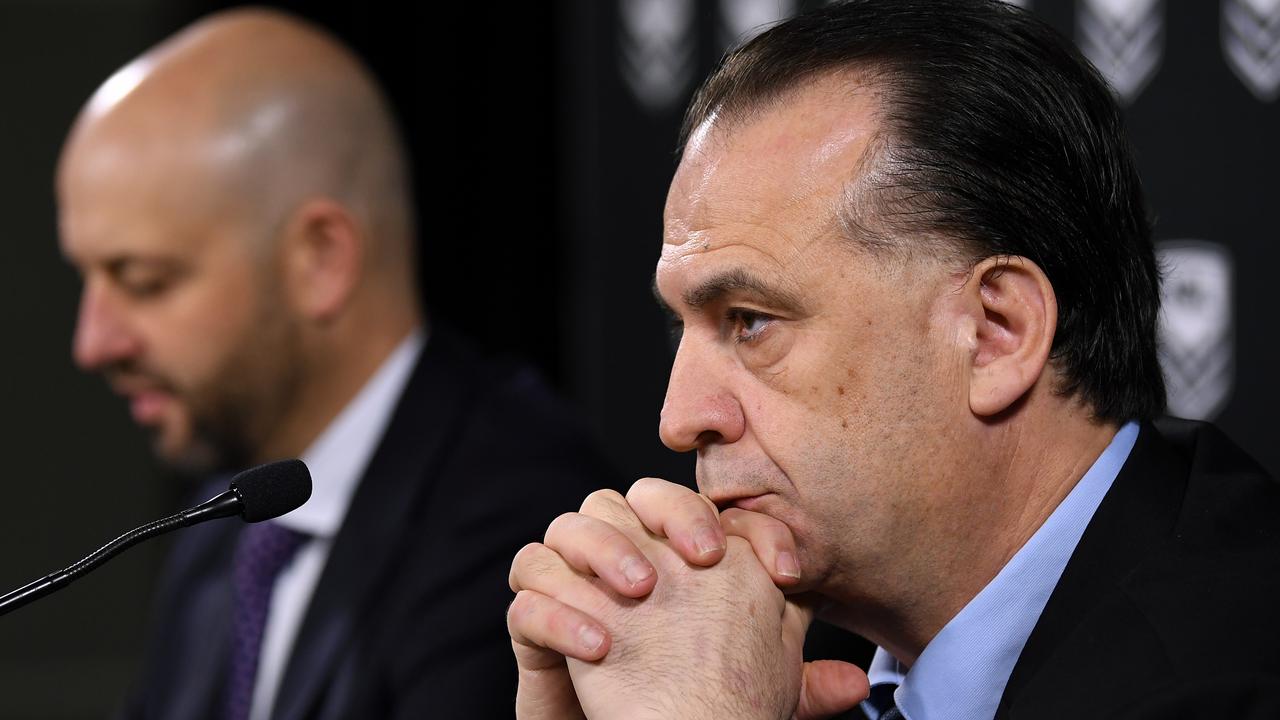
Australian Rugby League Commission chairman Peter V’landys knew he had to make the call to suspend the NRL competition. The advice was as direct as it was dire.
But those early fears of doom and disaster did not eventuate and soon a plan was hatched to relaunch the competition by May.
It was a daring deed, which ultimately saw V’landys praised for his leadership as the NRL provided a clear direction for world sport in the recovery.
Here’s how the chain of events unfolded:
Kayo is your ticket to the best sport streaming Live & On-Demand. New to Kayo? Get your 14-day free trial & start streaming instantly >
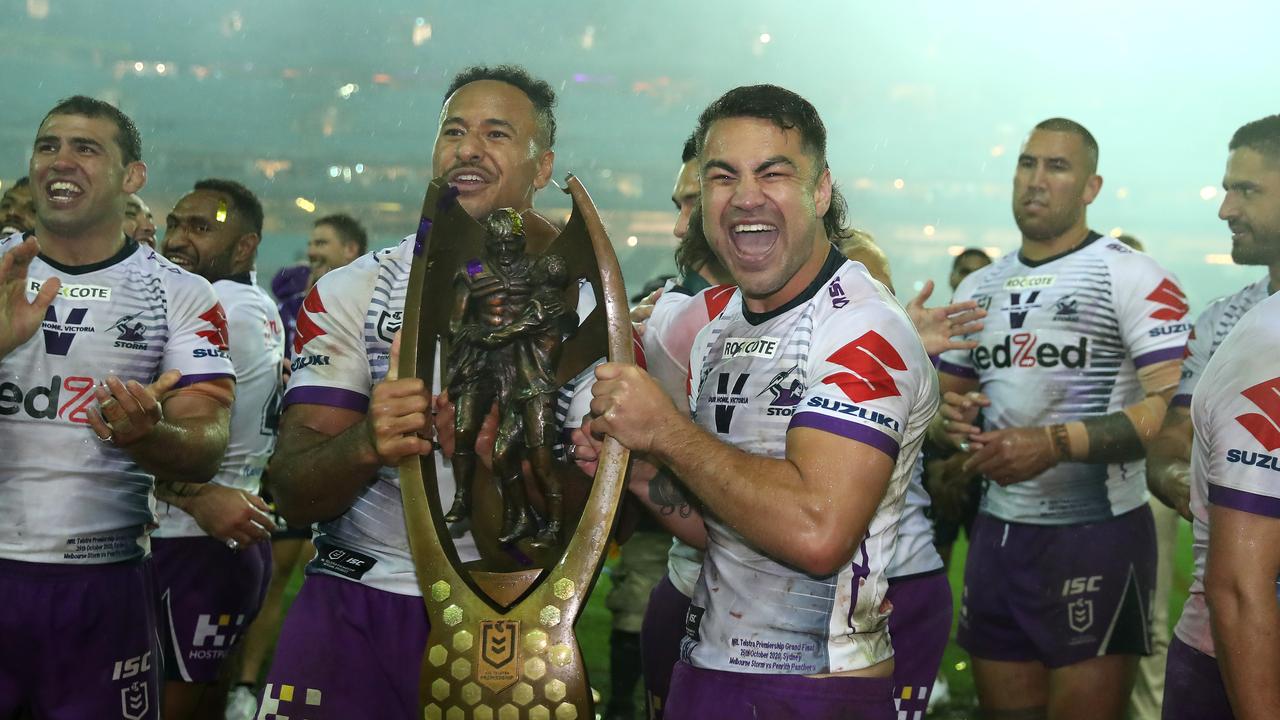
THE CHAIRMAN
Peter V’landys was in his office when he took the phone call from Todd Greenberg.
“It was about midday,” V’landys recalled, now a year to the day since the NRL competition officially shutdown at 5pm on March 23, 2020.
For weeks the Australian Rugby League Commission chairman had been working around the clock to keep the game up and running.
Against strong advice and often intense criticism, he marched forward like a man possessed.
Some believed it would ultimately prove his undoing.
He’d had his integrity questioned, his reputation attacked.
But not once had V’landys buckled under the scrutiny or stopped to second-guess himself.
Until this moment.
V’landys still credits his previous experience dealing with equine influenza more than a decade before as the boss of Racing NSW for providing him with his bullish belief that drove him through the COVID crisis.
But on this day last year there was a precise moment when the NRL’s very existence arrived at the crossroads.
Greenberg had called to inform V’landys that the NRL’s then biosecurity expert had basically withdrawn her support.
While the expert has never been named publicly due to a confidentiality agreement, it is public knowledge that V’landys did not always agree with all that he was told.
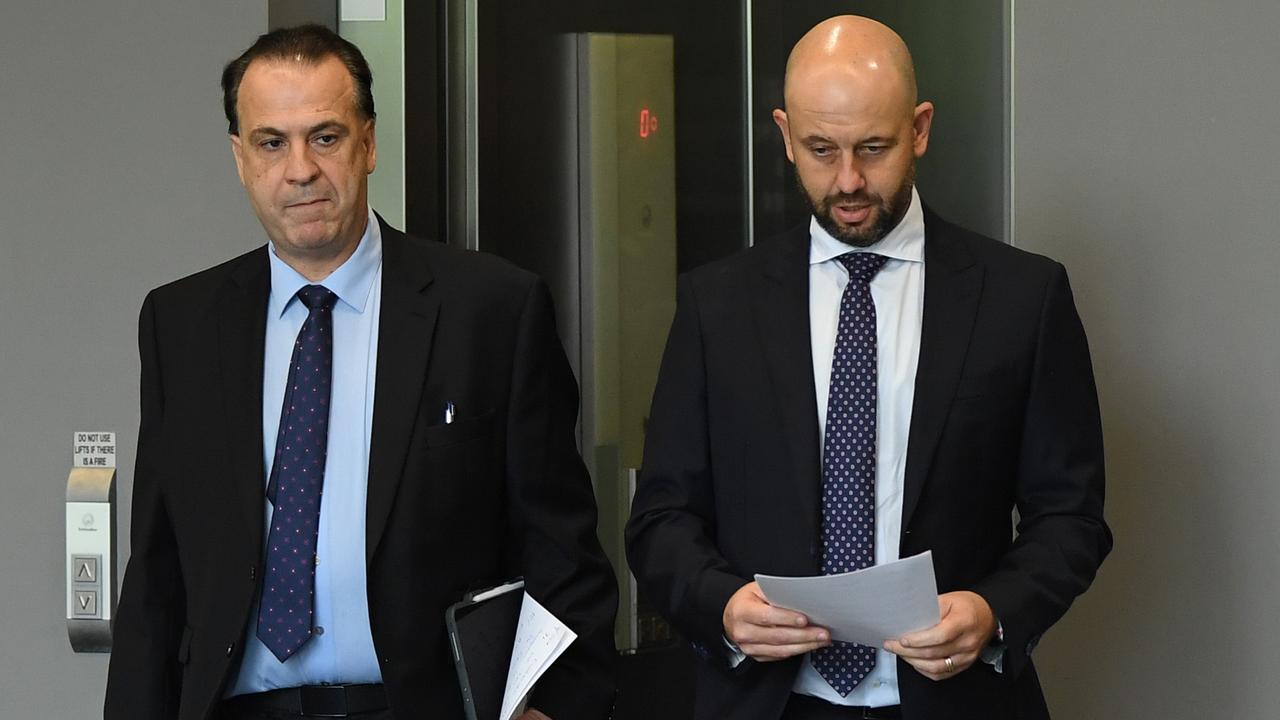
Though V’landys does not criticise now, he just offers his recollection of how it played out.
At the time there was also a power struggle going on behind the scenes between V’landys and Greenberg that was no secret to most in the game.
And on that front no one was quite sure who was going to be left standing when the music stopped, although the issue at this very moment wasn’t about their differences.
It was about fears for player safety that stopped V’landys in his tracks.
He didn’t talk with the biosecurity expert directly but recalled a warning as direct as it was dire.
“She said, ‘there is a risk that players will become seriously ill or die’,” he explained.
“Well, when she said that players’ lives were at risk, I had a duty of care.
“I had to listen to that advice at the time. There was no way I was going to risk any player’s life.”
That was not to say V’landys was ready to give up without asking more questions before he considered his next move.
“They spoke to the expert (again) about 3,” he continued, “I called a meeting (with the ARL Commission) at 4.
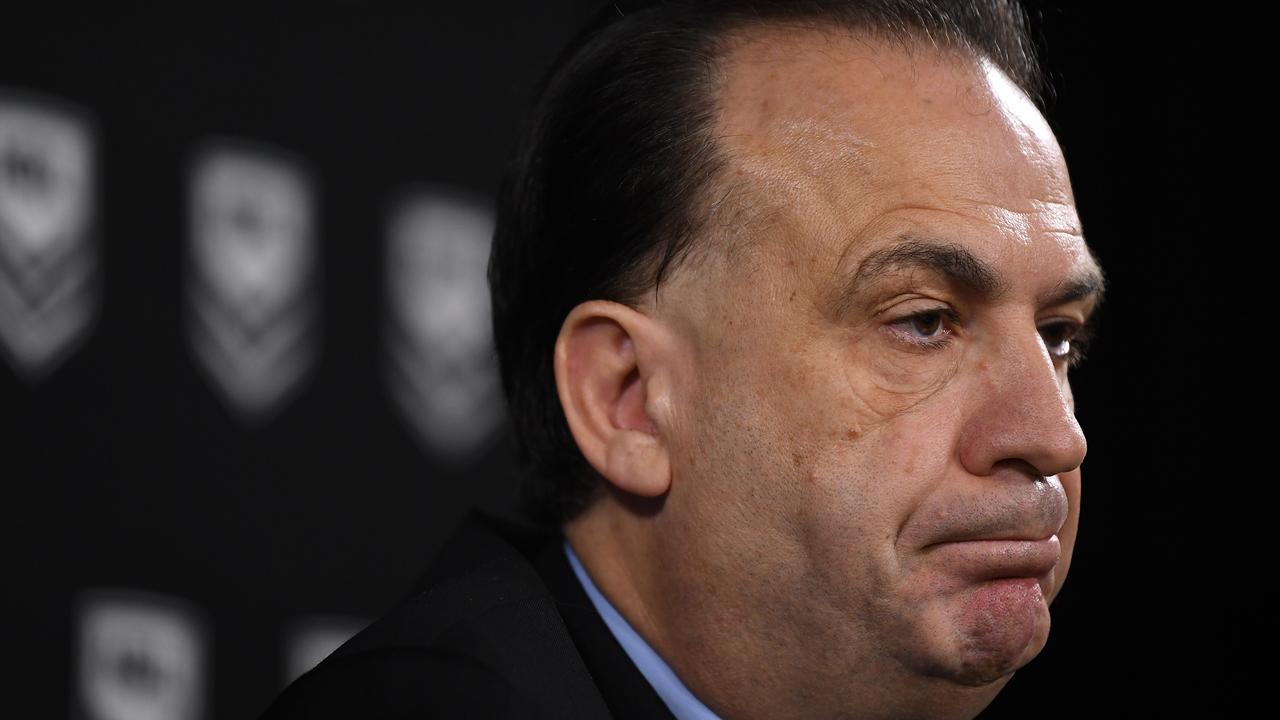
“She expected the infection rate to increase dramatically in the next couple of weeks.”
But what actually happened was the opposite — the rate started going down.
Though at that point V’landys had alarm bells ringing in his head.
“Her strong advice was to suspend the competition … so I had to take her advice because if a player then died I am up for manslaughter,” he said.
So after the Commission meeting V’landys and Greenberg fronted the media at 5pm.
By that stage every NRL club boss had been informed of the situation and, in turn, gathered players and staff to deliver the verdict.
It sparked confusion across the game with the majority told to go home until further notice.
Players took training gear and programs to get them through in isolation as they awaited their next instructions, while staff were left wondering when and even if their next pay cheque would arrive.
But what happened instead was that those early fears of doom and disaster did not eventuate.
And V’landys was ultimately praised for his strong leadership as the NRL provided a clear direction for world sport in the recovery.
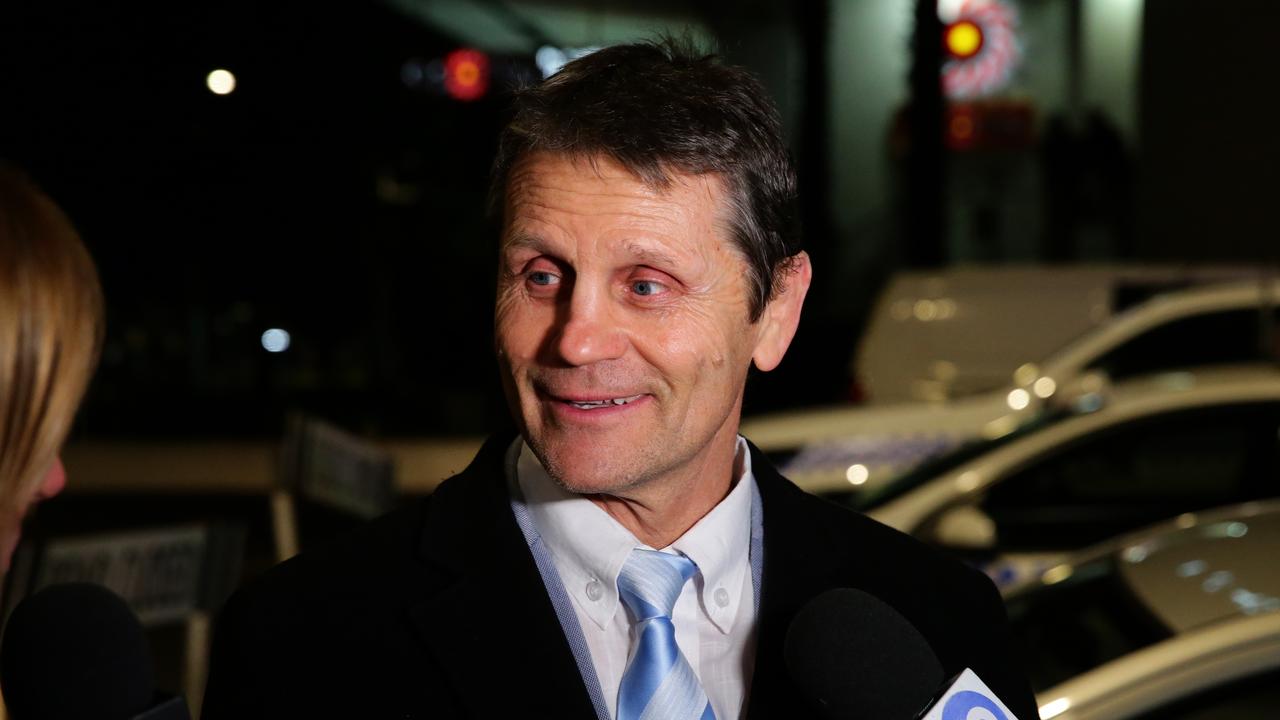
Within days the Project Apollo team was established that included Commissioner Wayne Pearce, now NRL chief executive Andrew Abdo, NRL head of football Graham Annesley, Canberra chief executive Don Furner, coaches Wayne Bennett and Trent Robinson, and Rugby League Players Association president Clint Newton.
Soon after a plan was hatched to relaunch the competition by May.
Again, many thought it was not only ludicrous but dangerous.
V’landys backed his judgment with statistics and experience.
Each day he started personally measuring the community infection rate and sending out emails that confirmed his views.
“That’s how I decided when we would start playing,” he said, “because I could see the trend was coming down, down, down, down, down.
“And in the background we were setting the biosecurity protocols which I wanted in the first place.
“When it all started, because of my experience with equine flu, I said, ‘Let’s not panic here and listen to all the white noise. What we should do is set biosecurity protocols and we can continue on just like we have in racing, because there was no danger to the players as was proven later on.
“We continued on with racing all the way through. We had no problem. Zero. And it proved if you put the biosecurity measures in place that you minimise any exposure.”
Although that night V’landys recalled feeling “completely shattered”.
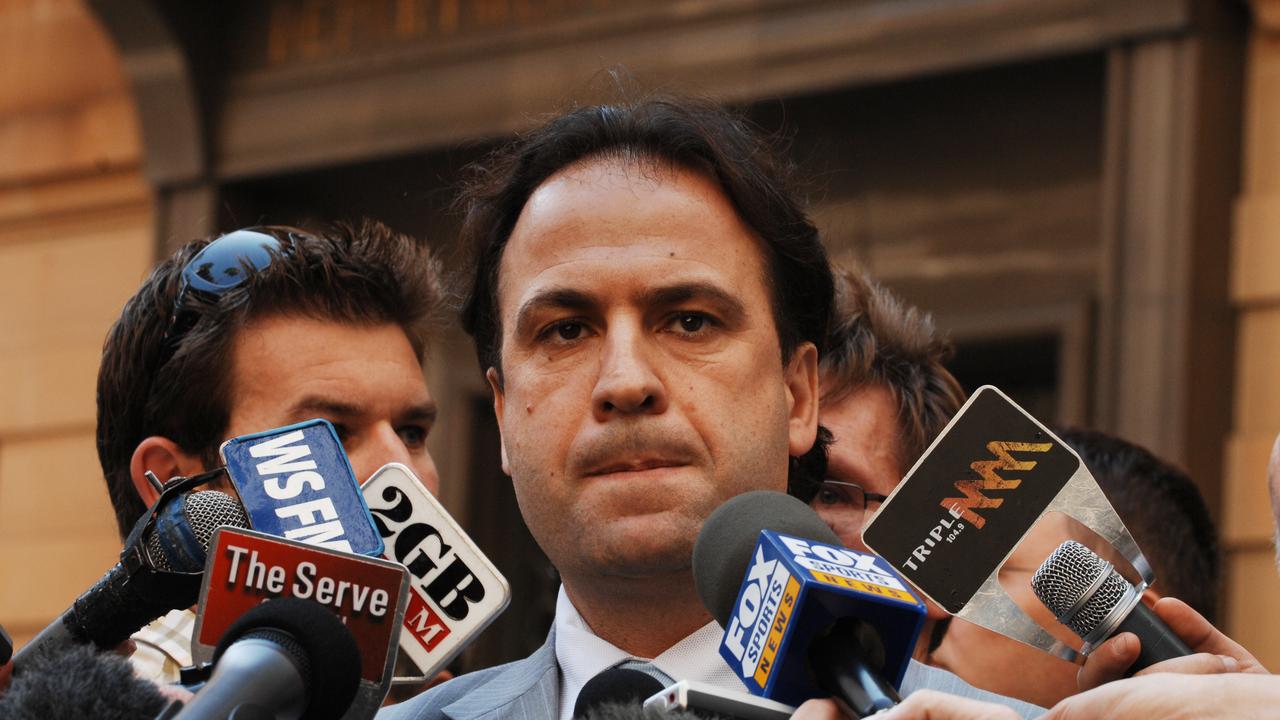
“In my mind I was still of the view that if we had the protocols done properly that we didn’t have to close down.
“So I was a little dejected in that sense, have we made the right decision?
“And there was a lot of pressure within the community for us to shut down as well.
“But that is when I made up my mind, that night, that we are going to do our research. We are going to do our own community infection analysis.
“The thing is, I learnt from equine influenza that you protect the people. So if you quarantine players away from (the general community), who have possibly got the infection, well, there is no risk.
“And people are saying, ‘Well, it is a contact sport.’
“Yes, it is a contact sport. But it is only if someone doesn’t follow the protocols and gets himself infected that it is a risk.
“And as the players proved, once we did set the protocols they abided by them.”
And the NRL has not looked back since.
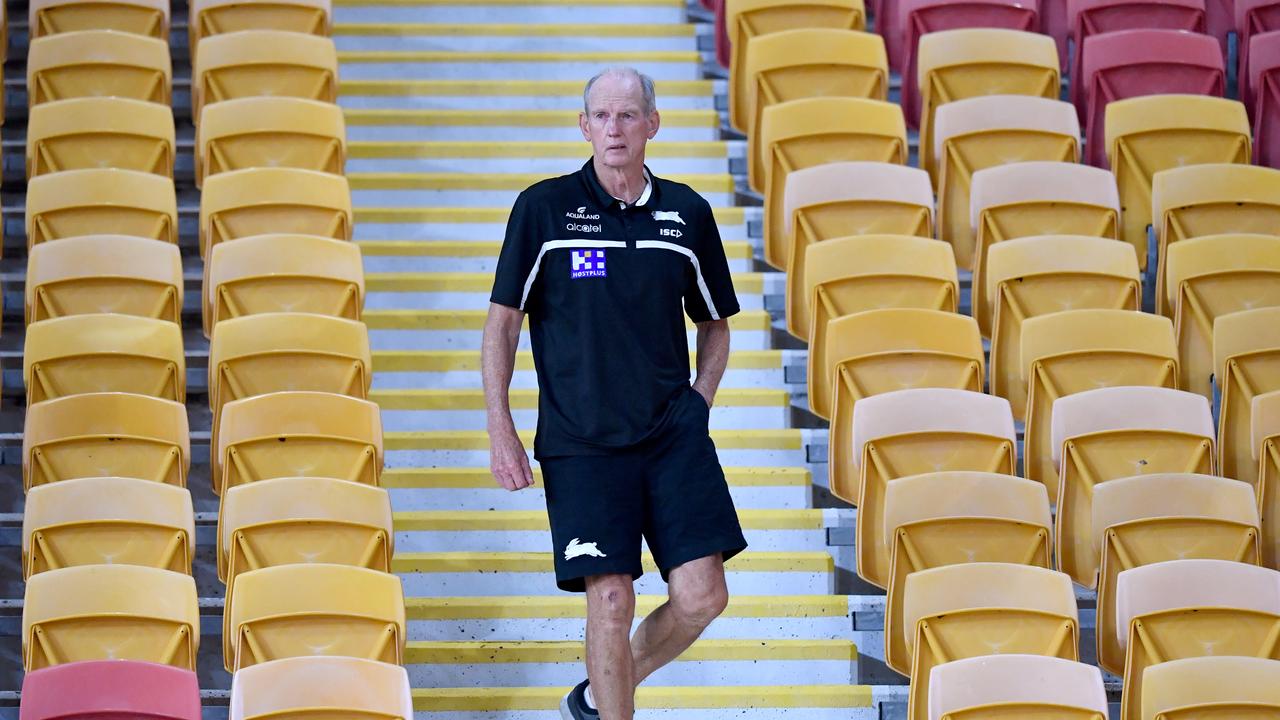
THE COACH
Wayne Bennett has coached at the top level for 35 straight seasons and in all that time can only ever remember the game truly coming together on two occasions.
The first was way back in 1997 at the end of the Super League war — and the second was last year when everyone involved in Project Apollo put aside their differences to pull rugby league out of the COVID crisis.
“It was one of the better things I have done in the game,” Bennett said.
“I thought they were very, very constructive meetings and I enjoyed being part of it.
“It showed again that if you get the right group of people in a room that don’t have an agenda, other than what is best for rugby league, it is amazing what can be achieved.”
Indeed, unbeknown to most in the room at that first meeting, was a tiny little problem — ARL Commissioner Wayne Pearce and Trent Robinson had not spoken for 18 months prior following Mitchell Pearce’s exit from the Roosters.
Peter V’landys had the idea to put the two in the Apollo team but was unaware of their history. In many respects it set the trend for what was to follow.
Because even though Robinson’s Roosters and Bennett’s Rabbitohs are also sworn enemies as clubs, that didn’t stop Robinson driving Bennett to meetings as they discussed ideas to get the game back up and running.
“I enjoyed his company,” Bennett said.
“He was about the game and I was about the game. It wasn’t about the Roosters or Souths.”
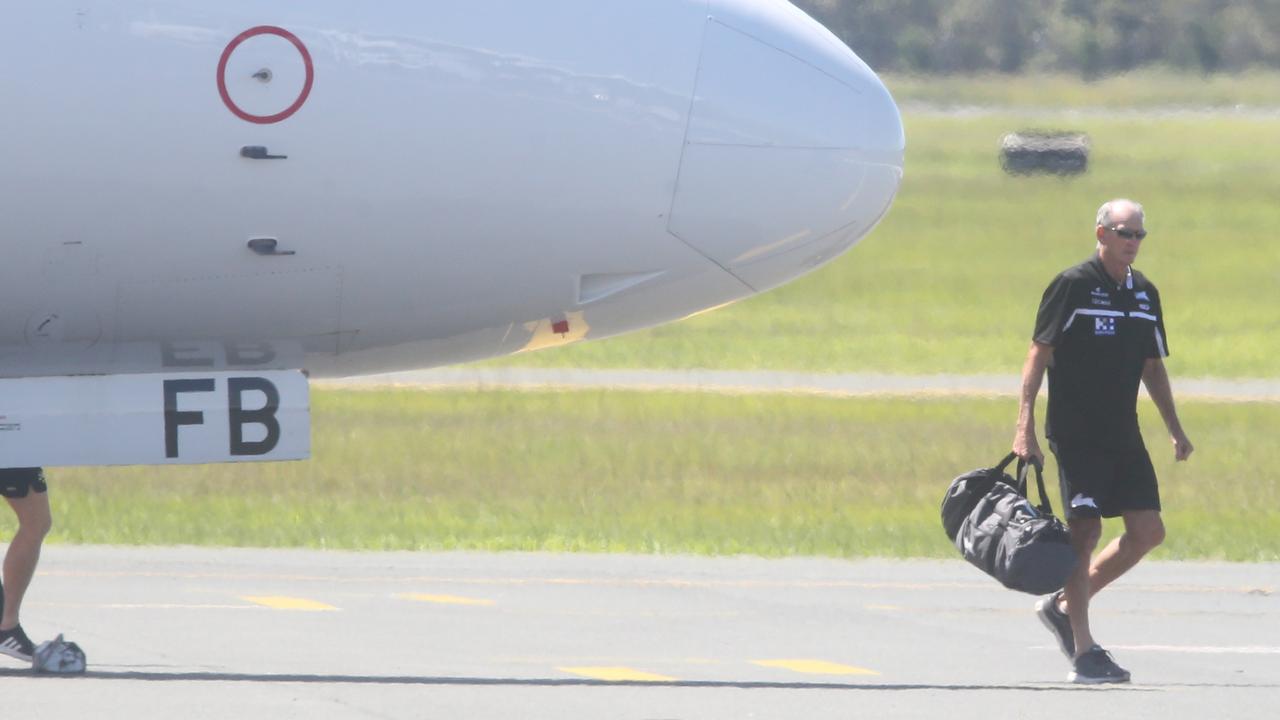
And Bennett maintains he was always on-board with V’landys with respect to what he considered a massive over-reaction that led to the competition shutdown in the first place.
“I am not saying it wasn’t serious, but I didn’t see why sport couldn’t continue,” Bennett said.
“And I was just so pleased that someone like V’landys had the courage to encourage the rest of us to go forward with it.
“You have to understand that at the time the whole world had closed down with sport and he managed to keep horse racing going and that gave me confidence as well.”
Bennett remembers telling his players after the information came through that the season had been suspended after round two “just to get on with their lives and that we’d look after them”.
“The club was doing everything it possibly could and we didn’t know when we were coming back,” he said.
“But I am not a drama queen so if it is a bad situation I am not going to make it worse by cheap talk.
“Life is full of challenges and this is just one that came our way … we just had to deal with it.
“I was a policeman (in his early days) and take it from me there were some days when there was drama, I can tell you.
“But the issue is always not to throw more fuel on the fire.
“If you have got a fire burning you have got to get it under control and putting more fuel on it doesn’t help.”
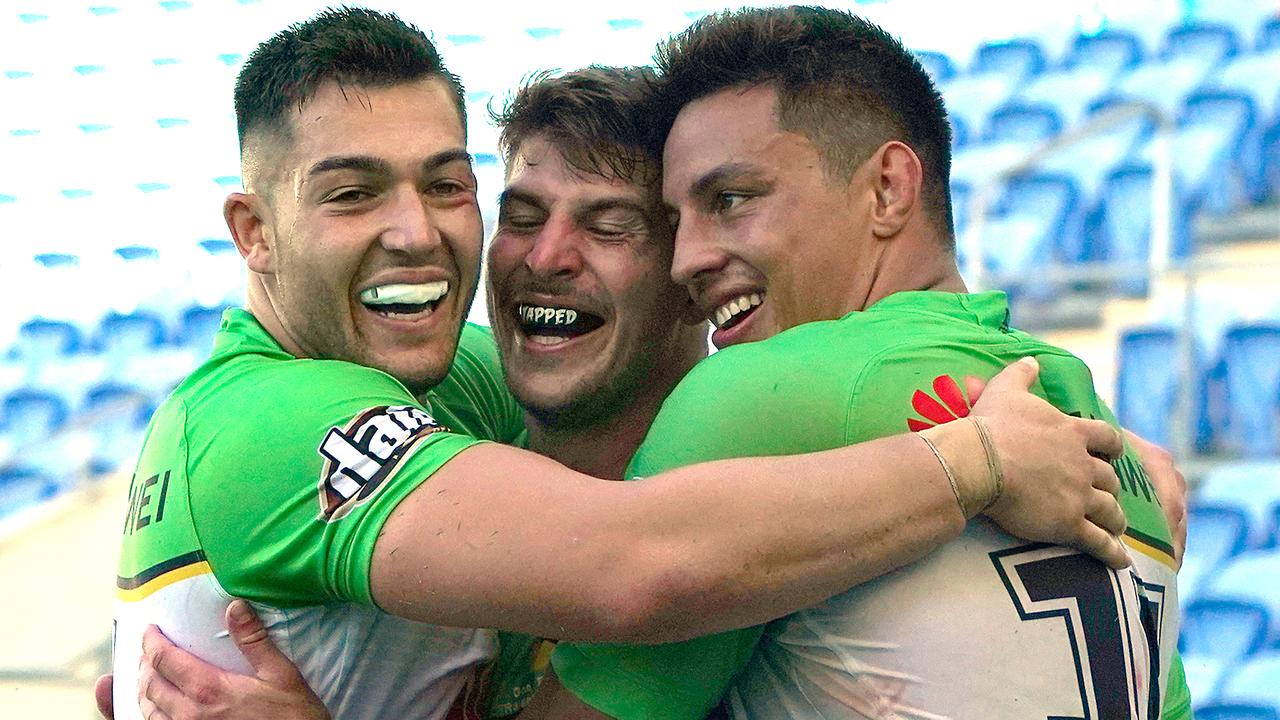
THE CHIEF EXECUTIVE
Skyfire is the annual March fireworks show held over Lake Burley Griffin in Canberra that has been going on since 1989.
So when Raiders chief executive Don Furner took a call this time last year notifying him that the long weekend celebration had been cancelled, his next immediate thought was “we’re in trouble now”.
“All the dominoes were falling,” Furner recalled.
“Every time you picked up the paper or watched the news something was cancelled.”
And on the Monday when the news arrived that the NRL competition had been suspended after round two, Furner’s only concern was coming up with answers for not only his players but all staff that work at the football club and in the Raiders’ associated leagues clubs.
While some of the players are on huge salaries, the majority of staff that work in rugby league often survive from week to week.
“And that was the biggest thing, what was going to happen to your employees,” the NRL’s longest serving club chief executive said.
“For us (the Raiders) are underpinned by licensed clubs and so that was a double blow because all the hospitality was shut down as well.
“So it was about survival, people putting food on the table.
“I remember when they announced JobKeeper we were constantly updated with changes in government policy and you were constantly ringing around other CEOs.
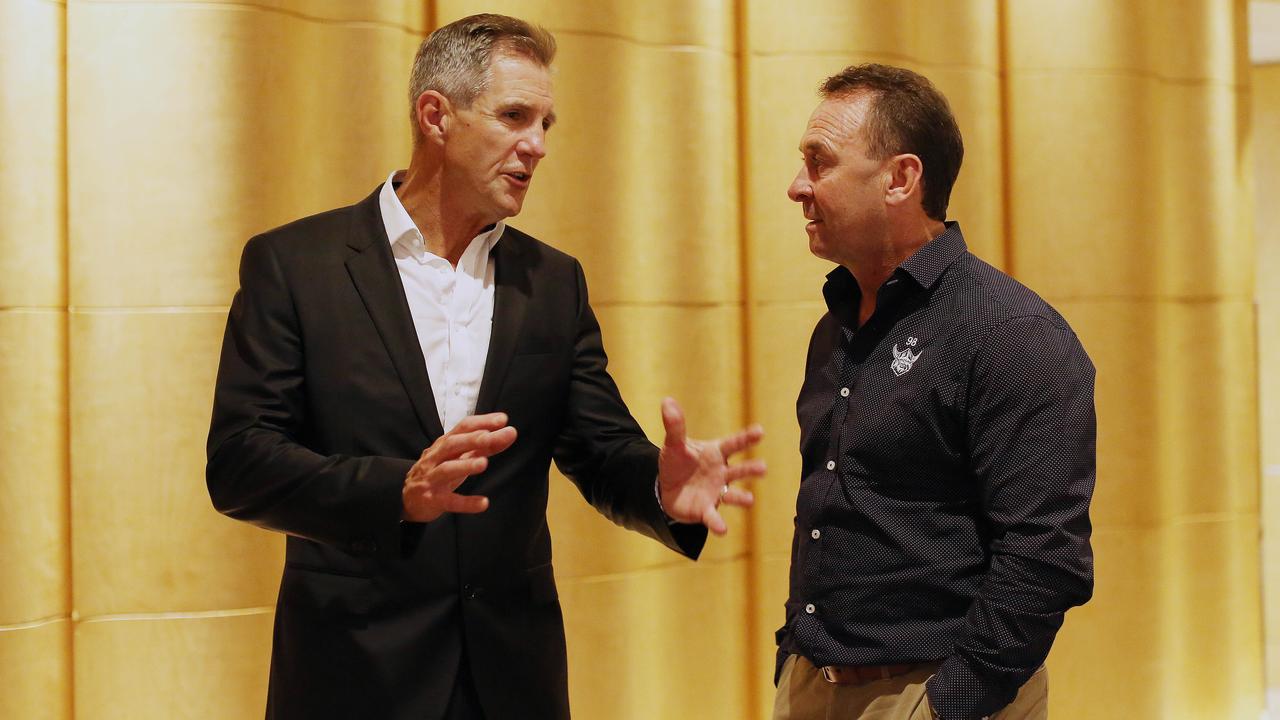
“There was a lot of information that had to be waded through and it was a massive relief to know who actually qualified for JobKeeper.
“I remember addressing all the staff and telling them that everyone had to leave.”
But Furner was especially proud how the NRL players stepped up to the challenge put to them to spend the season inside the ‘bubble’ while sportsmen in other fields often considered to be more elite did not.
“Honestly, the game and the players didn’t get enough credit,” Furner said.
“Because you have tennis players and golfers having parties and getting (COVID), and they don’t have to tackle each other as part of their sports.
“And other sports like AFL, rugby union and soccer, they all sat back and no one wanted to pull the trigger (on when to return).
“Particularly in Australia, AFL always pump their chest out. They sat back and waited. Probably hoped that we would stuff it up, then they could point the finger as only they do.
“But it is was pleasing. I mean, apart from a couple of mishaps the players really did well.
“And I do remember our doctor saying there is no way we will get through the season without a positive.
“The chances were so small. And it was amazing that we didn’t have a positive.”
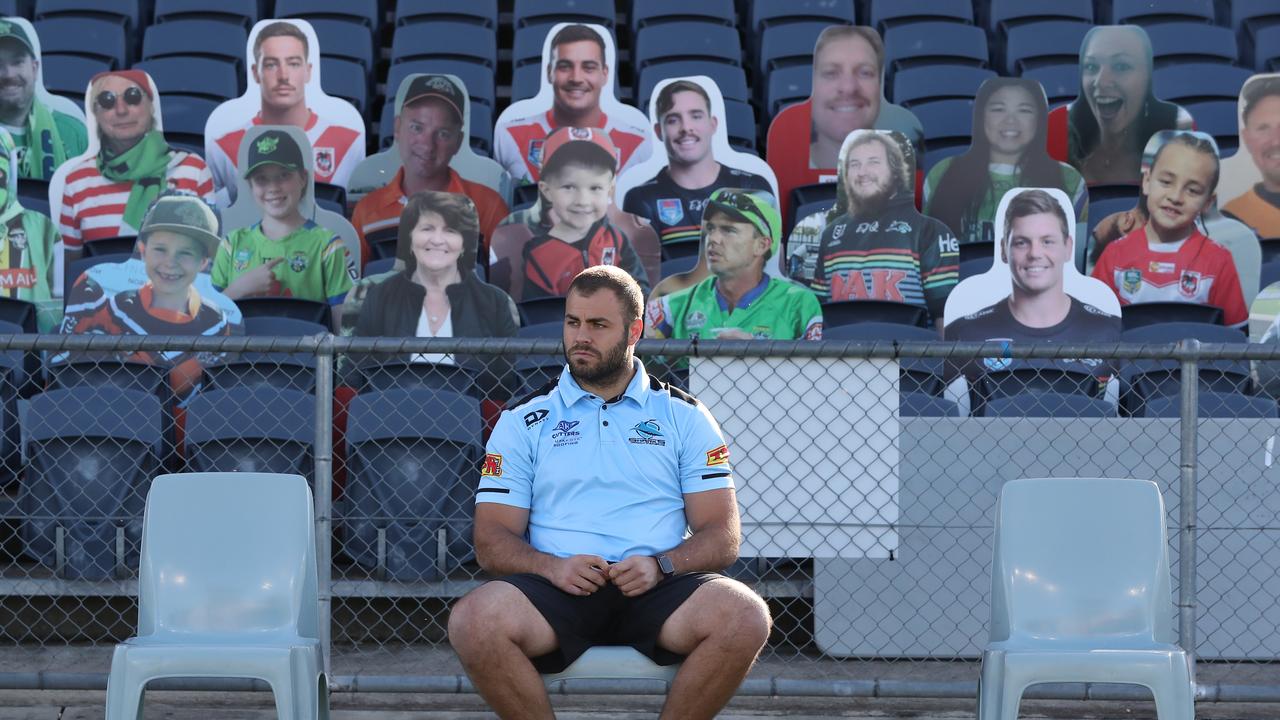
THE CAPTAIN
Every NRL player has an individual story to tell about what it was like last year living inside the rugby league ‘bubble’.
But for Cronulla’s tough-as-nails captain Wade Graham, who is also on the Rugby League Players Association board, as difficult as it was on occasions to personally deal with isolation, he says he didn’t have to look far for inspiration.
When the COVID shutdown occurred, Graham’s wife Karianne was heavily pregnant and a long way from her family back in Canada.
And with little Thomas then born in April, it means he’s now 11 months old and still to meet the rest of his family living on the other side of the world.
“She hasn’t been back home yet,” Graham explained.
“And they probably won’t meet him until the travel opens back up.
“Normally she would go back twice a year, but everyone has gone through some challenges.”
And given Graham’s position on the RLPA board, he was also at the coal face of all player related meetings, including those involving tough conversations about TV deals and salary cuts.
“In the very beginning I don’t think anyone was thinking about salaries or being paid because we were thinking about the season,” Graham, who celebrated his 250th NRL game last weekend, explained.
“It wasn’t until a week later that we sort of went, ‘Hang on a minute’ … that’s when the consequences sort of unfolded.
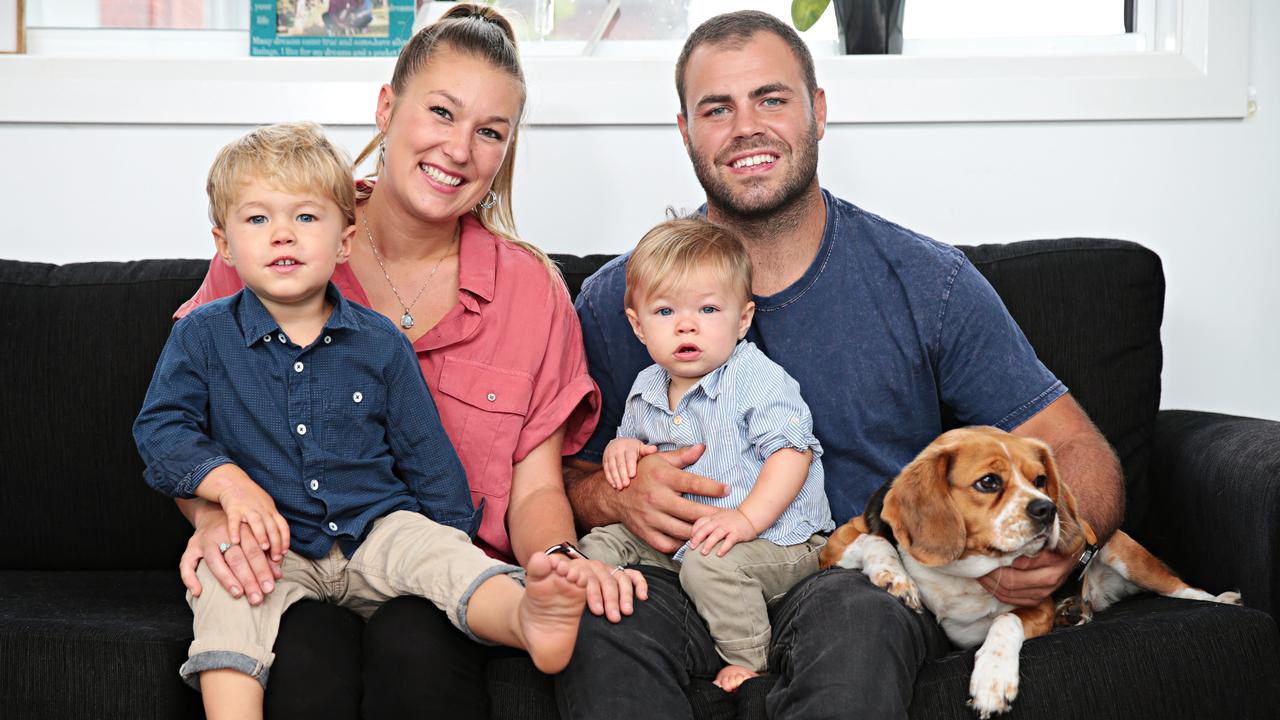
“But I have been in CBA negotiations before and I have been around the game for a long time so I know how the game works.
“And it was probably the first time I have ever seen everyone on the same page.
“You know, the NRL, the clubs and the players, everyone was just doing whatever it took to keep the game going.
“Now obviously there were a few little things along the way.
“But the overall feeling was that everyone was pushing in one direction.
“In my time in the game it is the first time I have seen everyone united.
“And even when there were disputes around the pay cuts, when it finished the overall feeling was always that we were heading in the right direction. We knew it would eventually work out.”
Graham also recalled the day the game shut down and the confusion that followed.
“We’d played Melbourne and then literally a couple of days later it was all over,” he said.
“We came in and we weren’t allowed to train.
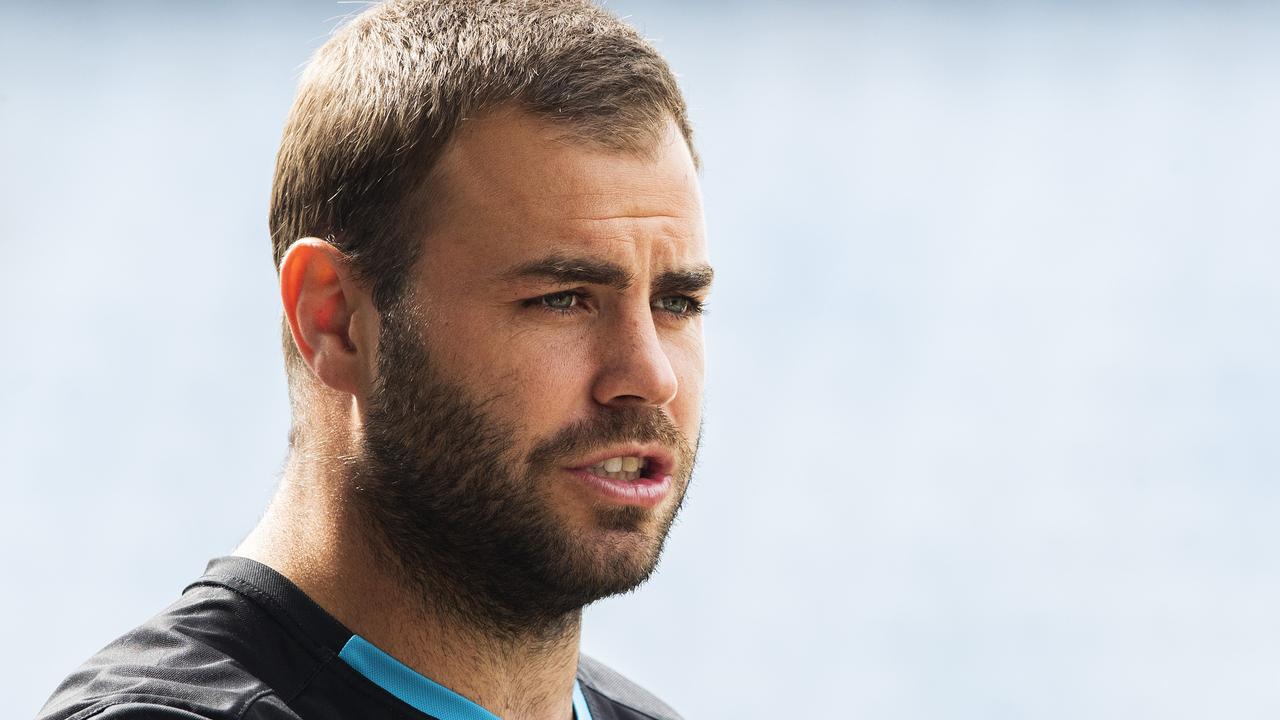
“So we went in and grabbed some training equipment and we were pretty much sent home until further notice.
“It was certainly not ideal living in the bubble. It was probably easier for me because I have a family.
“For some of the younger guys living by themselves in isolation would have been hard. But they did a great job just doing their job.
“We managed to get through the whole season pretty much unscathed. It was pretty remarkable when you think about it.”
More Coverage
Originally published as NRL COVID shutdown: Precise moment when the league’s very existence reached crossroads




